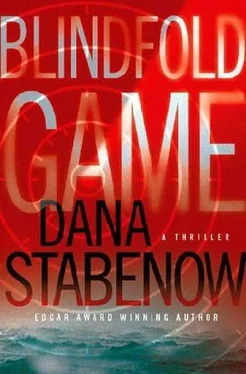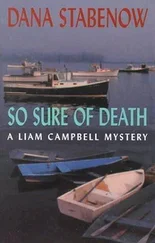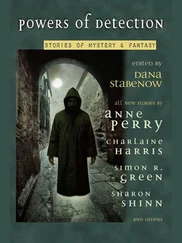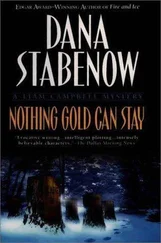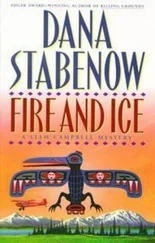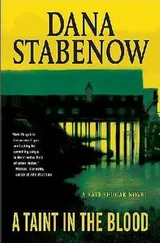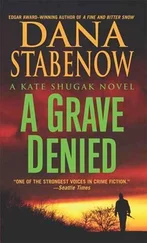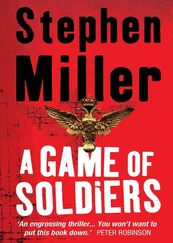Smith divided them into two parties, one with him, the other with Jones, and as soon as it was dark led them in small groups by various back alleys to the fence next to which they were currently huddled, blending into the winter landscape with white smocks enveloping them from hood to knee. And freezing to death in spite of the cold-weather gear.
The door to the guard shack opened with a brief blast of Elvis Presley singing about a party in the county jail, and a stray breeze wafted the smell of sausage to the huddled men a moment later. One of Fang’s men stirred. Fang gave him a fierce look and the man subsided, but he was as unused to cold-weather work as his boss was. Fang only hoped they were all going to be able to walk when the time came.
Approaching footsteps crunched through the snow. Fang looked around and saw one of the guards approaching, a slight, slender man with a mismatched uniform carelessly buttoned, trailing a cloud of cigarette smoke. He moved his hand down the stock of his rifle and felt something touch his arm. It was Smith, who gave his head one small shake, warning Fang not to move.
The guard wandered down the fence. They caught the occasional snatch of song in slurred Russian.
The guard paused ten feet from where on the other side of the fence the last man in line crouched, and unzipped his fly. The urine steamed and hissed as it hit the snow. He shook, tucked himself back inside his pants, and zipped them up again. He lit another cigarette and blew out a luxurious cloud. He spoke a few words in Russian in a low voice.
Next to Fang, Smith replied.
“Da,” said the guard, the only word in the entire conversation Fang understood, and strolled up to the corner of the fence, singing again as he went. It took a moment before Fang recognized the song as “Yesterday.”
Smith signaled the man closest to the corner, who produced a pair of snips and went to work. Moments later he folded back a large section of the chain-link, stepped through to the other side, and held it as the rest of them moved silently through the hole and into the yard.
The guard watched, still singing, although he had moved on to “In My Room,” giving a not bad impression of Brian Wilson. He seemed to go for mournful in his songs, but then he was Russian.
Once they were all inside the fence, Smith’s man bent it back into place and fixed it there with unobtrusive bits of wire. The guard nodded at Smith and jerked his head.
He led them into the labyrinth of stacked containers, keeping to where the darkest shadows were cast, and after they turned the first two corners Fang was hopelessly lost. The yard was deserted, the late shift having knocked off at midnight, but the waterfront of a port city was never completely silent, no matter what season it was, and the wind carried the sounds of forklifts and hydraulic hoists and the subdued rumble of ship’s engines, drowning out their footsteps in the snow, even if anyone had been around to hear them. It was almost too easy.
The guard led them to two containers toward the front of the yard, in the row closest to the large gate that fronted on the road that ran the length of the city’s coastline. He stopped and turned to face Smith. He motioned, telling Smith without words to back up and take his men with him.
Smith looked at him without expression and did as the guard requested. The guard produced a ring of keys from a pocket and opened both the padlocks on both container doors. He did something else with a tool Fang couldn’t make out in the shadowy light and the customs seals were also open.
The guard stepped rapidly back from the second door, still singing, this time a new song. Something about “son of a sailor,” he thought, but his teeth had begun to chatter and he couldn’t make out the words over the noise.
Another guard stepped from a row of containers, just out of reach for rushing, his rifle cradled in what looked to Fang like a competent grip. Fang, teeth still chattering, waited for the rest of the squad to materialize from the shadows and for him and his men to be arrested and escorted to prison, which would probably be warmer than standing around this yard.
The first guard stopped singing and said something to Smith. He snapped his fingers and pointed to the ground between them.
Smith looked at the first guard for a long moment.
The first guard snapped his fingers and pointed at the ground again. The second guard didn’t move.
Smith reached inside his smock and brought out a fat envelope. He tossed it on the ground. The guard motioned for him to back up even farther, and Smith did so. The guard stooped to pick up the envelope and opened it, thumbing through the contents.
He looked up and nodded at Smith. The last of Fang’s men, who had remained behind when they came through the fence, materialized out of the gloom behind the second guard. Steel flashed, dark fluid spewed across the snow, the guard fell heavily. Almost before he hit the ground Fang’s man had recovered and pocketed the payoff.
Before the first guard could give the alarm, Fang was there, his knife sliding easily and expertly through the guard’s uniform and his ribs, up and straight into the heart, stopping it in midbeat. The guard sucked in a great breath of air, shocked eyes staring into Fang’s. He looked down at the knife, at Fang’s hand on the hilt, as if he couldn’t believe it, and then he, too, fell, the knife sliding free, the blade stained a dark purple in the lights of the yard.
Smith took a quick step forward and shoved Fang back. “What do you think you are doing?”
“No witnesses,” Fang said without expression.
Jones shoved forward and he and Smith exchanged angry words in whispered Korean. It was obviously about Fang’s action, and it was equally obvious that it was uncomplimentary.
“Enough.” Fang nodded at one of his men. The Koreans watched as the bodies were arranged to look as if they had been fighting, as the guards’ sidearms were fired into both their wounds, covering up the knife marks. The gunshots were masked by the roaring and clanking of heavy equipment operating nonstop all around them. In a town this size there wouldn’t be a medical examiner or probably even an effective police force. The local cops would believe what was easiest for them to believe.
Smith, coldly furious, said, “If you are quite finished here, please explain to me who now is going to close and lock the doors behind us and reapply the seals?”
Fang nodded at the man who had taken out the first guard. “He is.”
“And how, then, will he join us?”
“He won’t. He stays behind. He stays behind,” Fang repeated when Smith burst into another flood of Korean. He started toward the nearest container and after a tense moment Smith followed with ten of his men and five of Fang’s. Jones and the rest went into the second container.
The door thudded shut behind them and Fang could hear the seals and padlocks clicking back into place. The dark descended like a suffocating blanket. Instantly Fang wanted to be back outside freezing his balls off. More nervous sweat rolled down his spine. He didn’t like the dark, and he didn’t like small enclosed spaces. He didn’t like any of this at all, and the prospect of being stuck here for any length of time was not appealing. He wondered if he could advance the timetable and resolved to take up the topic with Smith at the earliest opportunity.
He wondered if Smith would listen to anything he had to say. He couldn’t understand Smith’s anger at the killing of the Russians. Anybody would think Smith wanted to get caught.
There was a snick and a light appeared. Smith had a flashlight. They were sandwiched between the doors and the cargo, equipment of some kind swathed in plastic and padding, most of it strapped to pallets. Smith motioned them to follow him as he edged his way between the front pallets and the walls of the container. This was ten times worse than just standing around in the dark. Fang’s clothing and equipment caught on every protruding bolt, and several times he was afraid he was going to have to ask for help, but at last they were behind the first row of pallets.
Читать дальше
